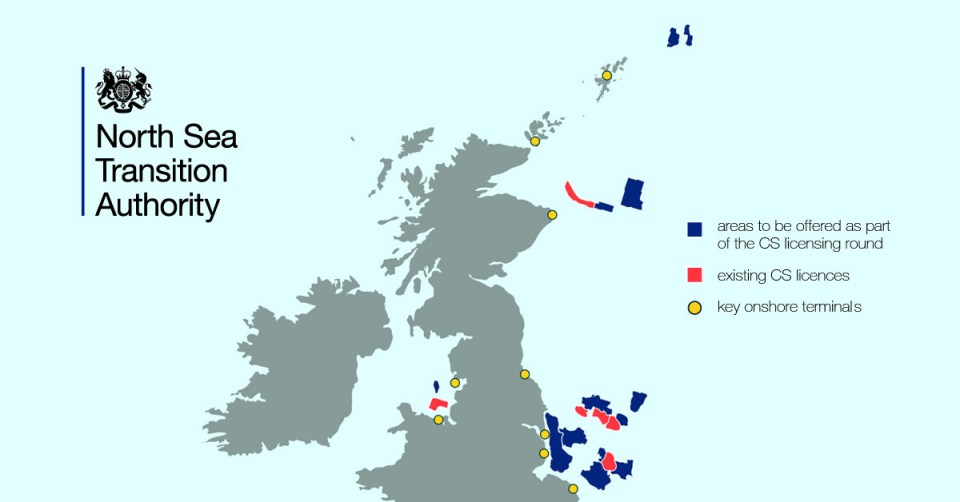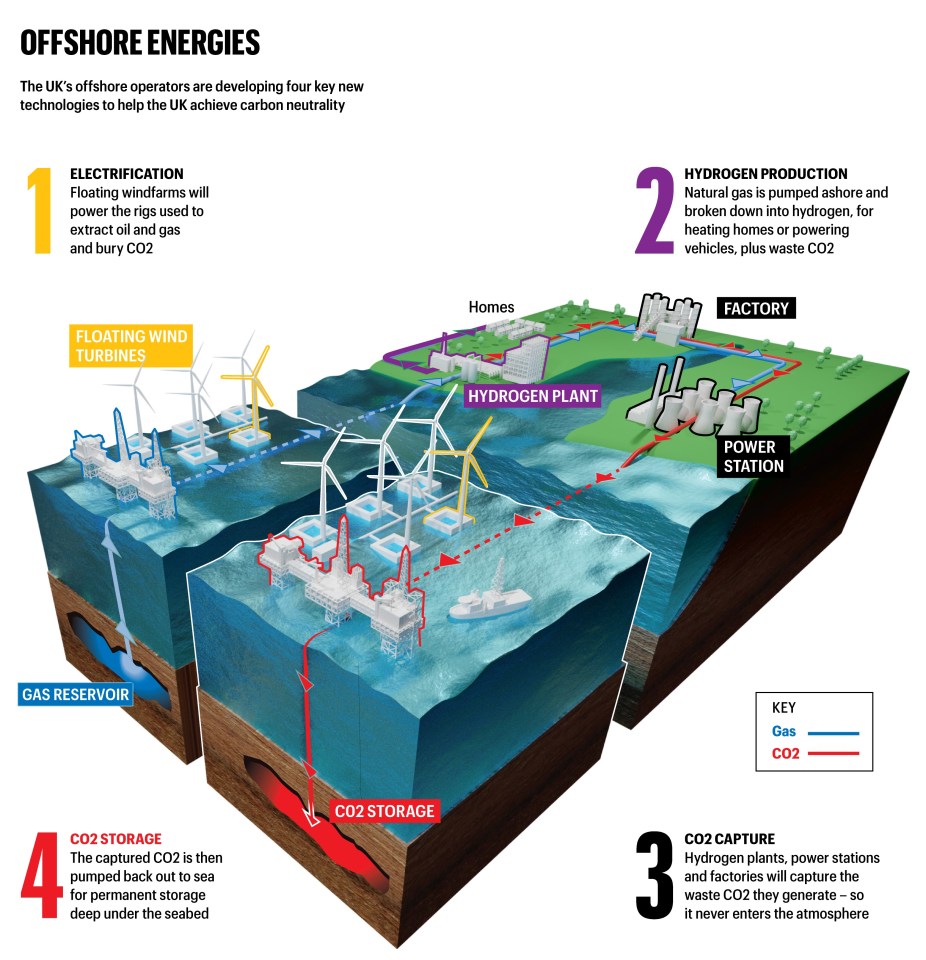Oil and gas body launches UK’s first ever carbon storage licensing round

Thirty million tonnes of carbon dioxide (CO2) could be permanently stored in rocks deep beneath the UK’s surrounding seas by the end of the decade, under plans unveiled today by the country’s leading fossil fuel body.
The North Sea Transition Authority (NSTA) has launched the UK’s first-ever carbon storage licensing round with 13 potential areas available to bidders.
The new carbon storage areas are made up of a mixture of saline aquifers and depleted oil and gas field storage sites, and follow six previously issued licences for domestic carbon storage on the UK’s continental shelf.
New sites are located off the coast of Aberdeen, Teesside, Liverpool and Lincolnshire in the North and Irish Sea.
The NSTA hopes the licensing round will be the first of many, in response to high levels of interest from companies eager to enter the market.

There is also growing environmental pressure for carbon licensing, with estimates that as many as one hundred CO2 stores could be required in order to meet the UK’s 2050 net zero carbon emissions target.
Carbon storage involves the capture of CO2 emissions from industrial processes, which is then transported from where it was produced – typically via a ship or pipeline.
It is then stored offshore, deep underground in geological formations.
In choosing suitable areas for licensing, the NSTA considered issues such as co-location with offshore wind, environmental issues, and potential overlaps with existing or future petroleum licences.
The application window is open for 90 days, closing on 13 September, with bids weighed up on both technical and financial criteria by the NSTA.
It is expected that any new licences will be awarded in early 2023.
Industry leaders back carbon storage commitments
The size and scale of the licensed stores mean they are likely to proceed at different paces, but the first injection of CO2 could come as early as four to six years after the licence award.
The government’s ten-point plan, published in November 2020, supported the establishment of carbon capture, usage and storage in four clusters – encouraging private sector investment.
NSTA chief executive Andy Samuel said: “Carbon storage is going to be needed across the world. There is growing investor appetite and we are keen to accelerate development of the carbon storage sector so that UK is well-positioned to be a global leader.
Will Webster, energy policy manager at trade body Offshore Energies UK (OEUK) said CO2 storage technologies could be applied the UK production sectors.
He said: “It is particularly important for industry, especially heavy industries which need a lot of energy and so produce a lot of CO2. This applies particularly to the cement and steel industries, petrochemical refineries, and power generation.”
OEUK described licensing as a “long-term project” and that the industry is aiming “to store 50m tonnes of CO2 a year by 2035 and continue expanding after that.”
Webster said: “That means we need a long-term commitment from government, a clear regulatory framework, and business models that encourage early investment.”
Dr Nick Cooper, chief executive of decarbonisation development company Storegga, told City A.M.: “With climate events worsening each year, it is vital we make large strides towards our carbon reduction targets. A crisis that seemed a distant threat is now affecting us in the here and now. As every second passes, the world pumps out more CO2 and our climate crisis worsens.”
Energy and Climate Change minister Greg Hands said: “We’re determined to make the UK a world leader in carbon capture, which will be crucial in helping us reduce emissions and protect the viability and competitiveness of British industry.”
